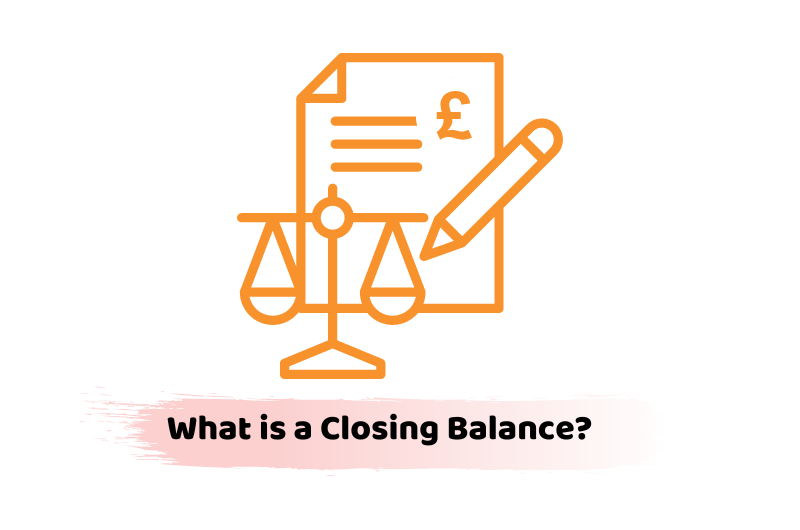In this discussion, we will talk about the concept and importance of the closing balance in accounting and financial management. It is also imperative to know how to calculate the closing balance by considering the starting balance, credits, and debits. We emphasised that the closing balance is crucial for reconciling accounts, preparing financial statements, and making informed decisions about budgeting, investing, or managing cash flow.
This will help to highlight its role in assessing financial health, analysing trends, and ensuring the accuracy of financial records. The closing balance serves as the starting point for the next accounting period and aids in evaluating financial performance over time. Overall, the closing balance plays a vital role in accounting and financial management by providing a snapshot of the account’s financial position and supporting effective decision-making.
Get in touch with one of our experts to learn more about what is a closing balance. We are available from 9:00 am – 05:30 pm Monday to Friday.
How to Define Closing Balance in the UK?
In simple words, we can say that the closing balance refers to the amount of money that is usually in the accounts when a tax year ends. It represents the total value of assets, liabilities, and equity after all transactions and adjustments have been recorded.
The closing balance is crucial for assessing the financial health of a business or individual, as it provides a snapshot of their financial position at a particular point in time. It is often used to reconcile accounts, prepare financial statements, and make informed decisions about budgeting, investing, or managing cash flow. If you aim to make accurate records and smooth experience with it, it is imperative to develop an understanding of the closing balance.
What are Common Examples of the Closing Balance?
Some common examples of closing balances include the remaining funds in a bank account at the end of a specific period, such as the end of the month or year. It could also refer to the outstanding balance on a credit card statement after all transactions have been recorded.
These closing balances are important for financial reporting, budgeting, and evaluating the overall financial health of an individual or business. They provide a snapshot of the financial position at a specific point in time, allowing for better decision-making and analysis of financial performance.
What is the Closing Balance in Banking?
In banking, the closing balance refers to the amount of money remaining in a bank account at the end of a specific period, such as the end of the day, month, or year. It represents the total funds available in the account after all deposits, withdrawals, and other transactions have been processed.
The closing balance is important for reconciling accounts, tracking account activity, and monitoring the financial position of the account holder. It helps individuals and businesses understand their available funds and make informed decisions regarding their finances.
What is Closing Balance in Accounting?
In accounting, the closing balance refers to the final amount of a specific account at the end of an accounting period, such as a month, quarter, or year. It represents the remaining balance after all transactions, including credits and debits, have been recorded and accounted for.
The closing balance is an essential component of financial statements, such as the balance sheet and income statement, as it provides an accurate snapshot of the account’s financial position at that specific point in time. The closing balance is also used for reconciling accounts and ensuring the accuracy of financial records.
How to Calculate the Closing Balance?
To calculate the closing balance, you need to consider the starting balance, add any credits or deposits made during the accounting period, and subtract any debits or withdrawals. Then, add up all the credits, such as sales revenue, interest income, or any other funds received.
Next, subtract all the debits, such as expenses, withdrawals, or any other funds paid out. The result will be the net change in the account during the period. Finally, add the net change to the opening balance to obtain the closing balance. This calculation helps in determining the final amount of funds available in the account at the end of the accounting period.
Why is Closing Balance Important?
The closing balance holds significant importance in accounting and financial management. It provides a comprehensive overview of the financial position of an account at the end of a specific period, such as a month, quarter, or year. By calculating the closing balance, businesses and individuals can accurately assess their available funds and financial stability. The closing balance is also essential for reconciling accounts, ensuring accuracy in financial records, and preparing financial statements. It serves as a starting point for the subsequent accounting period and aids in analysing financial performance over time.
The Bottom Line
To conclude the discussion of the closing balance, we can say that the closing balance is a crucial aspect of accounting and financial management. It is important for reconciling accounts, tracking activity, and evaluating financial health.
Overall, the closing balance provides a snapshot of the account’s financial position and aids in effective financial management. These several-minute readings will help you to realise the importance of closing balance and help you to handle it with improved efficacy in the future.
Reach out to our expert professionals to get your queries answered instantly. We will love to come up with the best possible solutions to your queries about what is a closing balance.
Disclaimer: The information about what is a closing balance is provided in this article including text and graphics. It does not intend to disregard any of the professional advice.





















































